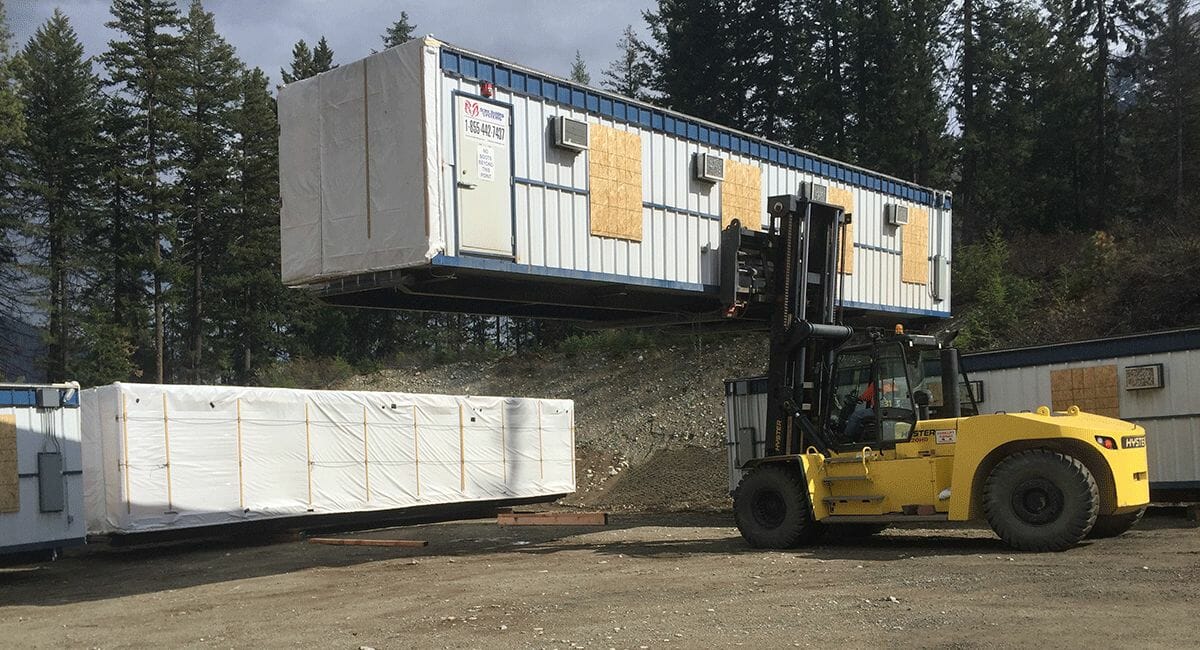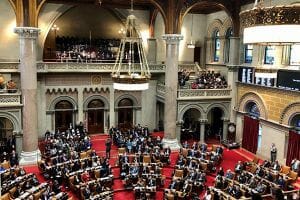MBI Solves Relocatable Building Code Issues in Atlanta
MBI stepped in to assist a large fleet owner member overcome government confusion

Relocatable buildings, like these structures from Aries Building Systems, can be used for a wide variety of functions, including classrooms, offices, and temporary housing. Sometimes, however, there’s confusion and disagreement within state and local governments over which requirements of the International Building Code should be used to certify these structures.
Relocatable buildings are defined in the International Existing Building Code as “partially or completely assembled buildings constructed and designed to be reused multiple times and transported to different building sites.”
Unlike the federally regulated HUD Code manufactured housing industry, the modular construction industry is regulated primarily at the state and local levels by code and agency administrators. As with site-built structures, the modularly constructed facility must meet the local codes where the building is to be located.
The trouble is, however, that sometimes there’s disagreement over which version of the codes should be used, particularly when it comes to relocatable buildings.
Confusion in the South
In late January, a fleet owner member of the Modular Building Institute (MBI) contacted Jon Hannah-Spacagna, the MBI’s government affairs director, to report that they were having permitting issues in Atlanta which had forced them to cancel some projects and were holding up others.
The center of this issue was that the city was trying to require the company to bring all their relocatable structures up to the 2018 International Building Code (IBC), the version of the code currently recognized in Georgia. According to the company’s regional general manager, “The feedback we got was, ‘Your plans are not up to date, you need to bring them up to code.’”
It didn’t take long for Hannah-Spacagna to confirm that there was, in fact, no code issue with the buildings. “That day I made a call to Georgia’s modular program director,” said Hannah-Spacagna, “and confirmed that the 2018 codes weren’t required for existing relocatable buildings.”
Following that call, Hannah-Spacagna connected the company—now armed with the facts from the state’s modular program director—with Atlanta’s deputy building official. It seemed a quick fix.
Not So Fast...
In the second week of February, Hannah-Spacagna received another call from the same member—despite attempts to resolve the issue on their own—they were still having issues with the city’s requirements for certification of their structures. Hannah-Spacagna immediately scheduled a call between the city and the member’s leadership team.
During the call, the city’s inspectors were trying to require new labeling on all existing and previously labeled relocatable structures, including classrooms, stating the units needed a new label and had to be brought up to 2018 codes. Estimates for that type of upgrade are about $3,000 to $4,000 per unit, and this member company had about 2,000 units in question.
Huge Savings for the Industry
Understanding what was at stake (a setback of up to $8 million in upgrades alone), Hannah-Spacagna quickly referenced Section 3113 of the 2018 IBC—which MBI wrote and had incorporated into the code. This section specifically distinguished between a newly constructed versus an existing relocatable structure. For existing structures, the IBC does not apply. Rather code officials are instructed to refer to the International Existing Building Code (IEBC) which doesn’t require the units to be brought up to new codes or have a new label (unless it has been modified).
The city’s deputy building official agreed with Hannah-Spacagna and confirmed with the department’s counsel about their misunderstanding of the codes.
“MBI works with members every day to remove obstacles and resolve regulatory and legislative issues like these, said Hannah-Spacagna. “If you need assistance, contact MBI, we can help. Membership has its privileges!”
About the Author: John McMullen is the marketing director for the Modular Building Institute. He can be reached at mcmullen@modular.org.
Additional Government Affairs Articles
MBI Works with WA Labor and Industries Dept.
MBI Works with Washington State Labor and Industries Department to Adopt Third Party Plan Reviews At the end of August,…
Read Complete ArticleModular Building Institute Protects Members Doing Business in New York
Modular Building Institute Protects Members Doing Business in New York Early during the 2020 New York State Legislature session, two…
Read Complete ArticleBreaking Down the “Modular Building Code”
MBI often gets calls from people asking, “what is the modular building code?” So, let’s answer that question here.
Read Complete Article- « Previous
- 1
- 2
- 3
- 4


